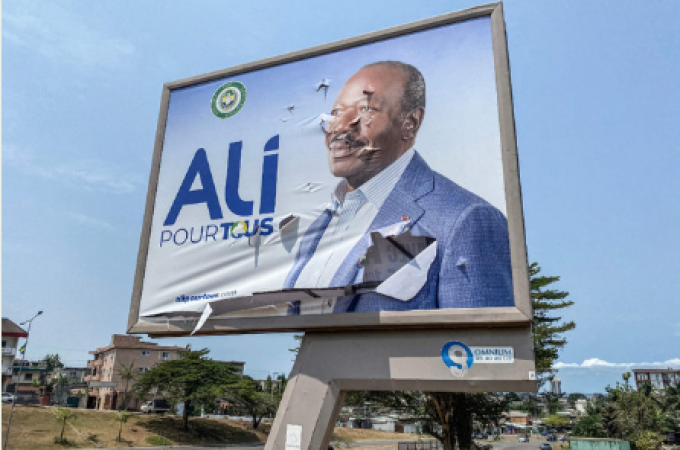
Libreville, Gabon: In a resounding move that underscores the commitment to upholding democratic principles in Africa, the African Union (AU) has decided to suspend Gabon's membership following a military coup that ousted President Ali Bongo Ondimba.
The AU Peace and Security Council, in a decision made on Monday, deemed the coup a violation of the AU's charter, which explicitly prohibits unconstitutional changes of government.
The military coup unfolded on January 7, 2023, orchestrated by a group of soldiers led by Lieutenant Colonel Kelly Ondo Obiang, who seized control of the government while President Bongo was away receiving medical treatment in Morocco.
Also Read: Burkina Faso seeks Russian help to fight Islamist insurgency
The coup leaders asserted that their actions were necessitated by Bongo's alleged inability to govern due to his health condition. However, the AU condemned the coup as a "serious violation" of its charter and maintained a steadfast stance against tolerating such actions.
By suspending Gabon's membership, the AU has signaled its unequivocal stance against the coup and its commitment to safeguarding democracy and constitutional governance across the continent.
The suspension effectively bars Gabon from participating in any AU activities, including high-level summits and meetings. This measure is set to persist until the AU is satisfied that normalcy has been restored in Gabon and democratic governance is reinstated.
Also Read: Diverse Champions of Service Honored with 2023 Ramon Magsaysay Awards
The coup in Gabon is part of a disconcerting pattern of military interventions in African politics in recent years. Similar coups have unfolded in countries like Mali, Guinea, and Sudan, prompting condemnations from the AU.
The organization has consistently advocated for the restoration of civilian rule in the aftermath of these coups, emphasizing the need for democratic institutions to prevail.
The military takeover in Gabon reverberates as a setback for democracy in Africa, highlighting the fragility of democratic processes in many African nations.
The AU now faces the challenge of collaborating with Gabonese authorities to expedite the return to civilian rule, fostering stability and democratic governance in the country.
In tandem with suspending Gabon's membership, the AU has called for the immediate release of President Bongo and other political detainees held in the aftermath of the coup. This call for the restoration of political freedom underscores the AU's dedication to upholding human rights and the rule of law.
Moreover, recognizing the gravity of the situation, the AU has proposed that the AU Commission send a delegation to Gabon to assess the on-ground realities. This step affirms the AU's commitment to understanding the nuances of the situation and contributing to a constructive resolution.
The international community has unanimously expressed its condemnation of the coup in Gabon. The United States, the European Union, and the United Nations have all echoed calls for the reinstatement of civilian rule, underlining the broad consensus against undemocratic power grabs.
The events in Gabon offer a stark reminder of the complex challenges democracy faces in Africa. While the continent has made significant strides towards democratic governance, instances of military intervention underscore the inherent vulnerabilities.
To this end, the AU must redouble its efforts to bolster democratic institutions, promote transparency, and foster a culture of respect for constitutional governance.
As the AU navigates these complexities, its commitment to democracy and stability will be a crucial driver of change. Ensuring a swift return to civilian rule in Gabon is a pivotal step, but the larger goal lies in preventing future coups and bolstering the foundations of democracy across the continent.
The AU's role as a unifying force, coupled with the cooperation of member states, will be vital in fostering lasting change and nurturing the growth of democratic governance in Africa.
In conclusion, the African Union's suspension of Gabon's membership following the military coup underscores its unwavering dedication to democratic principles and constitutional governance.
Also Read: Philippine President Imposes Price Ceiling on Rice to Shield Consumers from Escalating Costs
The move not only reflects the AU's commitment to democratic values but also serves as a stern message against attempts to undermine them. As the AU works to restore civilian rule and strengthen democratic institutions in Gabon, its actions will undoubtedly have far-reaching implications for democracy's trajectory in Africa.
Through collaborative efforts and unwavering commitment, the AU has the potential to pave the way for enduring democratic stability on the continent.